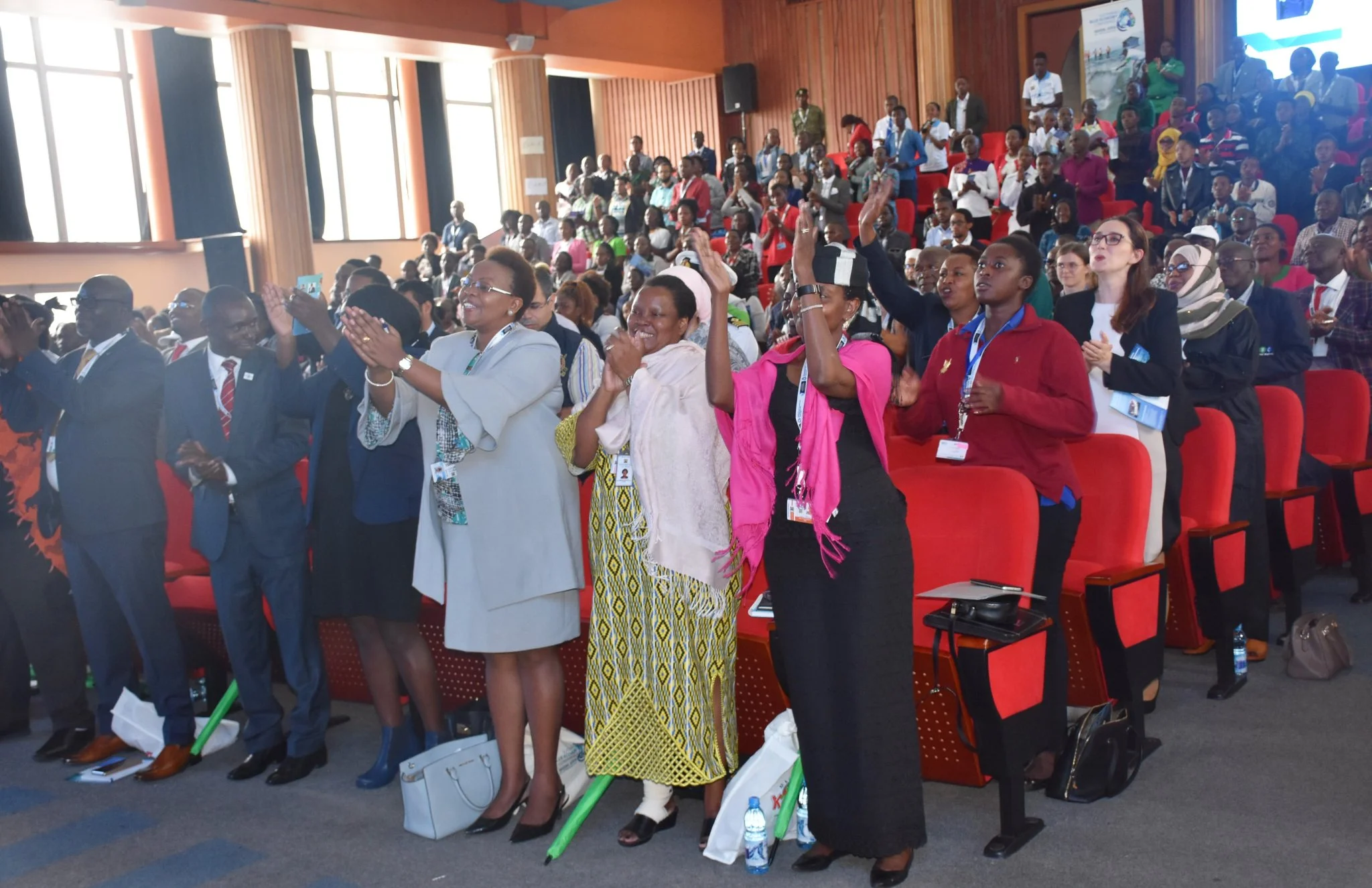The global Sustainable Blue Economy Conference (SBEC 2018) was held from 26th to 28th November, 2018 at the Kenyatta International Convention Centre (KICC) in Nairobi, Kenya. The conference brought together 16,320 participants from 184 countries. They included 7 Heads of State and Government, 84 Ministers, several Heads of International Organizations, Mayors and Governors, the business and private sector, community leaders, the civil society, and women and youth organizations.
The following Heads of State and Government participated: H.E. Uhuru Kenyatta, President of the Republic of Kenya, H.E. Filipe Nyusi, President of the Republic of Mozambique, H.E. Danny Faure, President of the Republic of Seychelles, H.E. Mohamed Abdullahi Mohamed Farmajo, President of the Republic of Somalia, H.E. Yoweri Kaguta Museveni, President of the Republic of Uganda, H.E. Dr. Ali Mohamed Shein, President of Zanzibar and Chairman of the Revolutionary Council, (Representing the United Republic of Tanzania), and The Rt. Hon. Dr. Saara Kuugongelwa-Amadhila, Prime Minister of the Republic of Namibia.
The theme of the conference was ‘the Blue Economy and the 2030 Agenda for Sustainable Development’ broken down into nine distinct but mutually reinforcing sub-themes. These were smart shipping, ports, transportation and global connectivity, employment, job creation and poverty eradication, cities, tourism, resilient coasts and infrastructure, sustainable energy and mineral resources and innovative industries, management and sustaining marine life, conservation and sustainable economic activities, ending hunger, securing food supplies, promoting good health and sustainable fisheries, climate action, agriculture, waste management and pollution-free oceans, maritime security safety and regulatory enforcement and people, culture, communities, the inclusive blue economy.
Participants had strategic discussions predicated on the two pillars of production; accelerated economic growth, job creation and poverty alleviation, and sustainability; climate change and controlling pollution.
These were held in the context of the Leaders Commitment Segment, nine Signature Thematic Sessions,Business and Private Sector Forum, Governors and Mayors Convention, Science and Research Symposium, Civil Society Forum, Side Events and the Leaders Circle and Closing segments. Partnerships for financing, access to new technologies and innovations; capacity building, integrating women, youth and people in vulnerable situations and opportunities, priorities and challenges in the blue economy sectors were discussed as cross cutting issues.
SBEC 2018 resulted in among others the Nairobi Statement of Intent on Advancing a Sustainable Blue Economy (annexed) which contains a number of key political messages. They include the need to; promote action-oriented global strategies that places people and the blue economy resources at the center of sustainable development; promote collaboration for sustainable partnerships and projects in the various sectors of the blue economy; mobilize finance from the public and private sources, promote access to technologies and innovations, share best practices, capacity building; promote gender equality, the role and participation of women and youth in the blue economy; strengthen science and research to generate and disseminate evidence-based knowledge and information as well as to inform policy and decision making; strengthen governance mechanisms; and promote synergies within and between different levels of governments.
Participants made numerous voluntary non-monetary and monetary commitments amounting to approximately USD172.2 billion in the various sectors of the blue economy. The commitments which are annexed to the Statement of Intent cover new partnerships and networks for joint investments in projects,financing, technology development and transfer and capacity building among others.
The outcomes are expected to galvanize and deepen collaboration between and among governments and stakeholders on blue economy, and to help align the blue economy with the needs of the society. If implemented in the needed scale, they can catalyze unlocking of the full potential of the ocean, seas, lakes and rivers and accelerate economic growth, job creation and poverty eradication. Correspondingly, they can amplify ongoing efforts at protecting and conserving the resources for the present and future generations. These are critical steps for a prosperous, inclusive and sustainable blue economy and the success of the UN 2030 Agenda for sustainable development and the SDGs.

